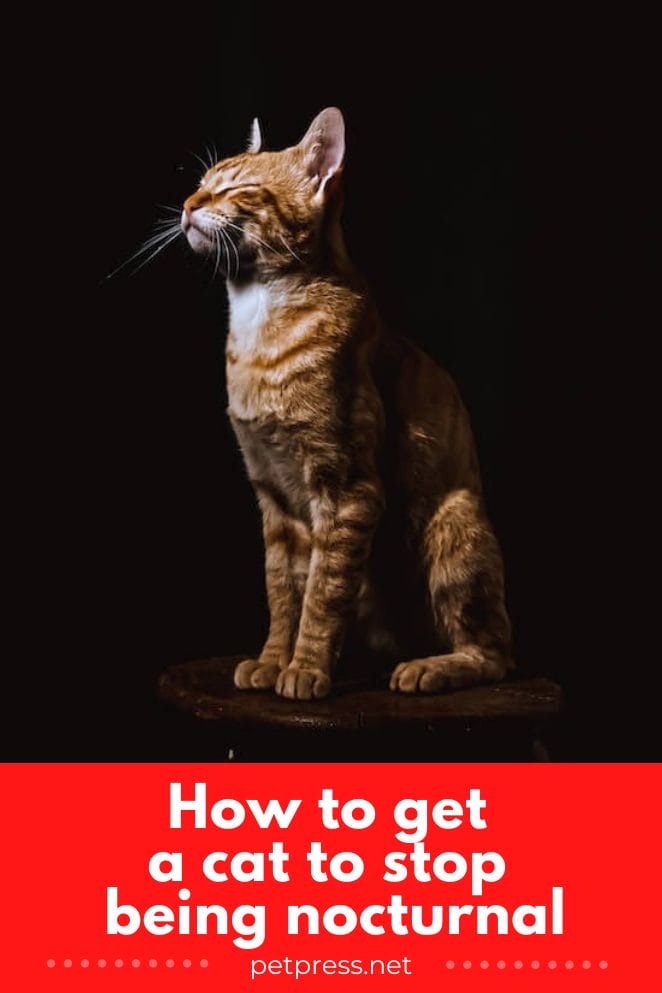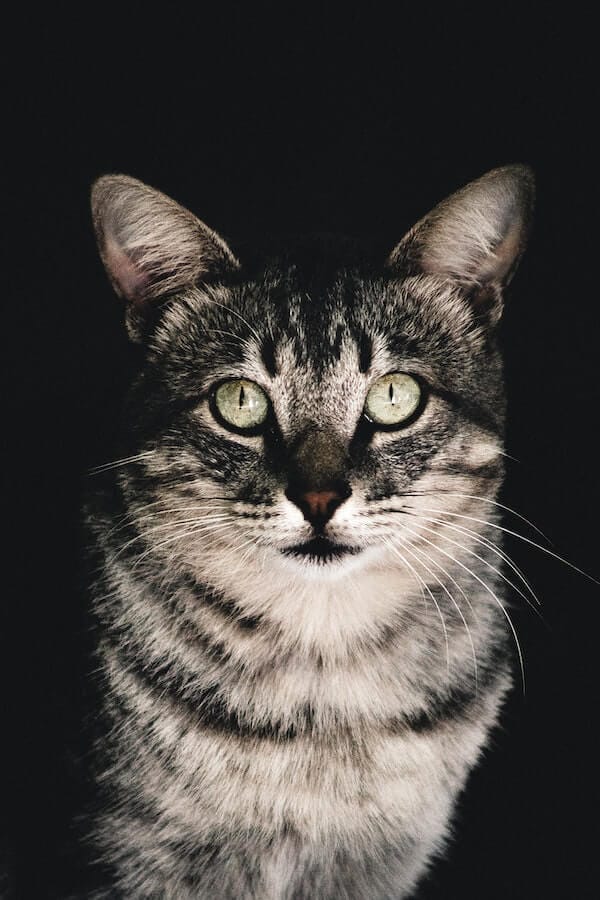
If you’ve ever lived with a nocturnal cat, then you know it can be difficult to get your beauty sleep. How to get a cat to stop being nocturnal?
How on earth do you convince your feline friend that it’s time to snooze during the day and have some fun at night?
Well, luckily, there are a few strategies that you can use when trying to get a cat to stop being nocturnal.
From playing more during the day to limiting their food intake in the evening, these tips are sure to help turn your most active pet into an early bird!
So let’s dive in and figure out what it takes to get your cat’s sleeping habits on track.
Are cats fully nocturnal?
No, cats are not fully nocturnal. They are what’s known as crepuscular animals, meaning they’re most active during dawn and dusk.
This means that cats are typically more awake and alert at night than humans, but their activity doesn’t usually peak until the time just before sunrise or just after sunset.
One good example of a cat’s natural instinctive behavior is that they often prefer to go hunting when it’s dark outside.
Cats have excellent vision in the dark and can use it to their advantage when stalking prey. Additionally, many small rodents like mice come out at night to feed so this provides cats with better chances to catch something for dinner!
Cats may also be more inclined to stay up and play at night when there are fewer distractions.
During the day, cats can get easily overwhelmed by loud noises or too much activity, so they tend to prefer settling down for a nap during these times instead.
It’s worth noting that some cats may also be more active during certain parts of the day or night depending on their individual personalities and preferences.
While cats do generally have an affinity for the nighttime hours, don’t be surprised if your cat is still awake and ready to party well after the sun has set!
Is it normal for cats to wander at night?

It’s not uncommon for cats to wander off at night—it’s actually quite normal!
Cats are naturally curious, and the nighttime hours provide just the right mix of peace and quiet with plenty of exciting things to explore.
Sometimes cats meow at night too as they are wide awake and need some attention.
Plus, cats have exceptionally good night vision compared to humans, so they can easily go exploring without having to worry about stumbling around in the dark.
However, it’s important to keep an eye on your kitty if you notice them venturing out after dark.
Although cats can take care of themselves pretty well, there are some dangerous creatures that come out at night—raccoons, coyotes, and even other cats—that could pose a threat to your pet.
Keeping your cat indoors is generally the best way to stay safe.
How to get a cat to stop being nocturnal

There are ways in which you can train a cat to adjust its sleeping schedule so that you both get some restful sleep. Here are 10 tips for getting a cat to stop being nocturnal:
1. Keep the daytime active:
During the day, make sure that your cat has plenty of opportunities for playtime and exercise. This will tire them out and encourage them to sleep more during the day.
2. Make nighttime low-key:
When it comes to nighttime, try to keep things quiet and dull. Avoid playing or petting your cat during these hours as this can lead to overstimulation and make them more likely to stay up late.
3. Use food puzzles:
During the evening, offer your cat a few food puzzles that they can solve for their dinner. This will provide another outlet for energy and may help tire them out sooner than usual.
4. Create a comfortable sleeping area:
Provide a cozy spot in your house where your cat can sleep peacefully without any distractions or disturbances from other people or pets in the house.
5. Establish a regular routine:
Set a strict schedule for your cat and include regular meals, playtime, naps, and bedtime. This will help your cat get used to the idea of following a routine and will make it easier for them to adjust their sleeping habits accordingly.
6. Give them an early dinner:
Feeding your cat their dinner earlier in the evening can help to encourage them to sleep sooner rather than stay up late.
7. Keep it dark:
When the sun sets, shut the curtains or blinds in order to keep the room dark which may encourage your cat to settle down sooner than usual.
8. Add calming scents:
You can use calming sprays and scents to help your cat relax, such as lavender or chamomile.
9. Play music:
Put on some soothing tunes in the evening that can help lull your cat to sleep faster—this will be especially effective if you stick with the same playlist each night.
10. Offer treats:
Provide your cat with a few special treats when it’s time for bed. This can act as a positive reinforcement and reward them for going to sleep at their designated bedtime.
Following these tips should help get your kitty used to sleeping during nighttime hours instead of in the wee hours of the morning!
Cats are creatures of habit so consistency is key—if you stay consistent with your cat’s sleep schedule and training, you should soon have a nocturnal-free household.
At what age do cats calm down at night?

There’s no one-size-fits-all answer to the age at which cats will calm down at night. Some cats may keep up their kittenish behavior for years, while others may mellow out sooner than expected.
Although we can’t put an exact number on it, most felines tend to settle down as they get older.
After all, a wily 8-month-old is most likely going to be more active than a geriatric 15-year-old who just wants his catnaps!
Kittens and young cats typically have bundles of energy that might last until the wee hours of the morning.
Final Thoughts
Now that you are aware that how to get a cat to stop being nocturnal, it’s time to take some decisive action.
Here’s the lowdown: make sure that your kitty is getting plenty of play and exercise during the day, ensure a consistent sleep schedule, and keep her away from the noise and bright lights at night time.
And don’t forget to give them lots of love, especially when she’s awake!
With patience, consistency, and maybe even a few treats here and there, you should soon have your kitty purring like an early bird again in no time. Good luck!
- 7 Dog Breeds With Webbed Feet And Why Do They Have Them - July 19, 2023
- 10 Best Fish For Small Tanks That Make Perfect Pets - July 18, 2023
- How to Breed Guinea Pigs: A Detailed Guide - July 17, 2023


GIPHY App Key not set. Please check settings